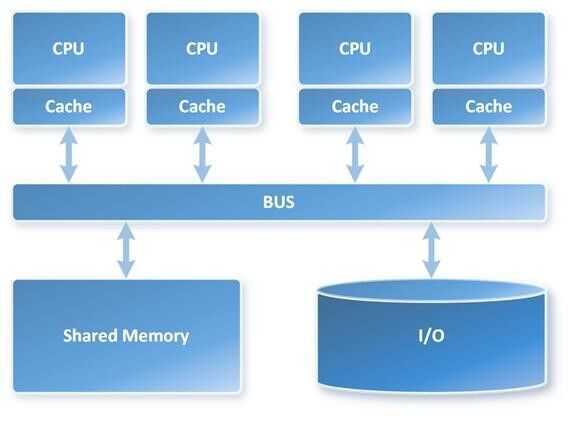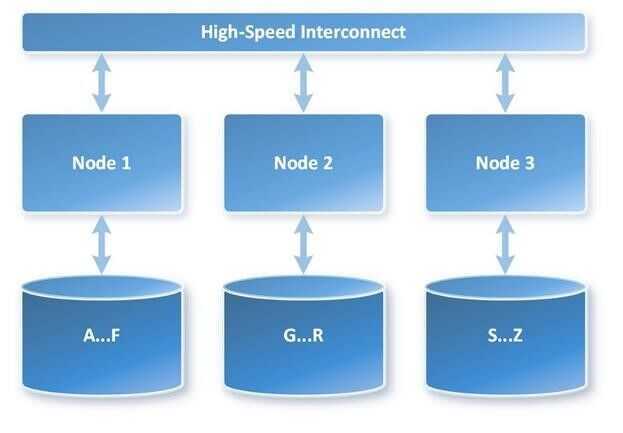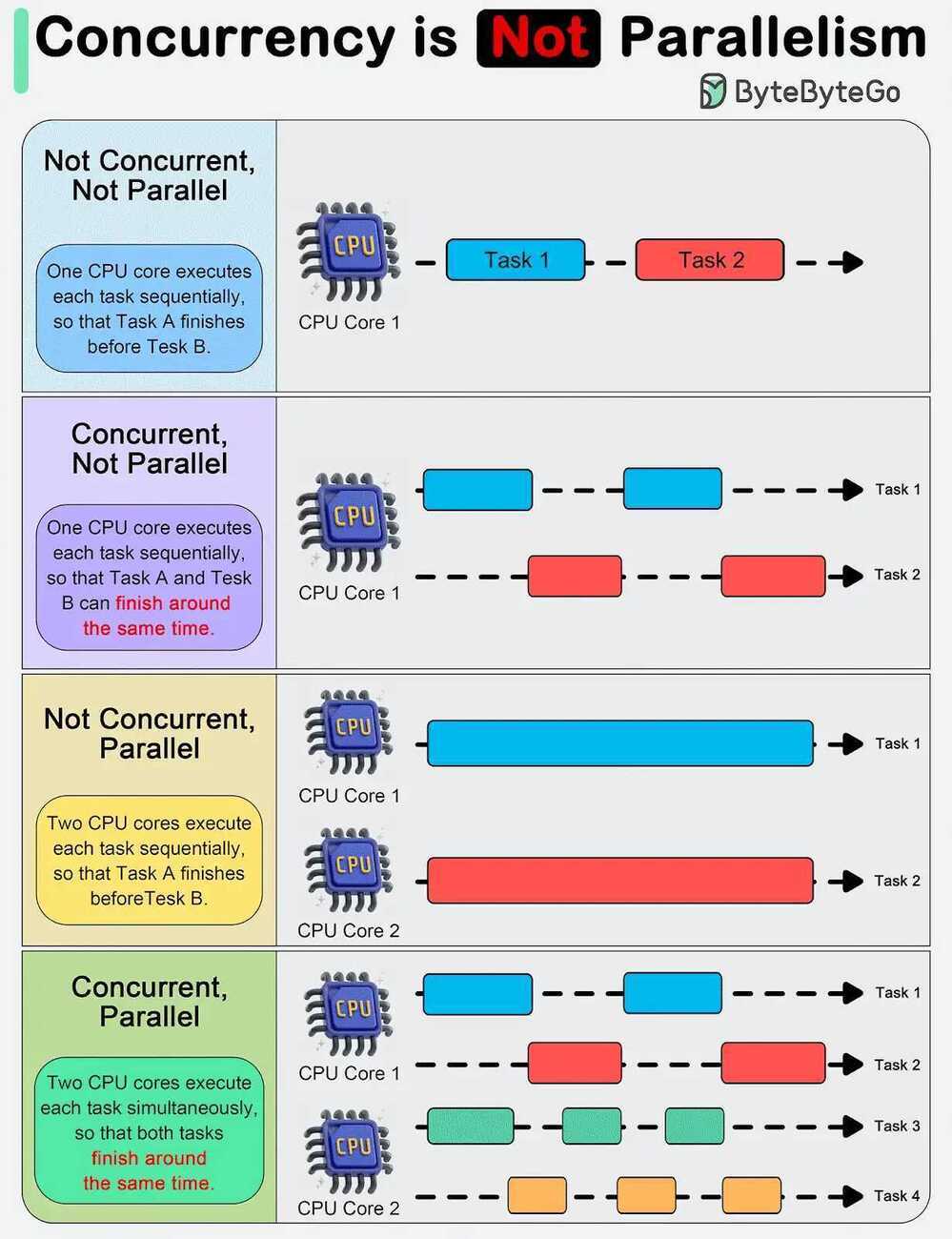Parallel Processing
Parallel Processing, MPP (Massive Parallel Processing)
Symmetric Multi-Processing (SMP) is a tightly coupled multiprocessor system where processors share resources -- single instances of the Operating System (OS), memory, I/O devices and connected using a common bus. SMP is the primary parallel architecture employed in servers and is depicted in the following image

Massively Parallel Processing (MPP) is the coordinated processing of a single task by multiple processors, each processor using its own OS and memory and communicating with each other using some form of messaging interface. MPP can be setup with a shared nothing or shared disk architecture
In a shared nothing architecture, there is no single point of contention across the system and nodes do not share memory or disk storage. Data is horizontally partitioned across nodes, such that each node has a subset of rows from each table in the database. Each node then processes only the rows on its own disks. Systems based on this architecture can achieve massive scale as there is no single bottleneck to slow down the system. This is what Emma is looking for.
MPP with shared-nothing architecture is depicted in the following image.

Message Passing Interface (MPI)
Message Passing Interface(MPI) is a standardized and portable message-passing standard designed by a group of researchers from academia and industry to function on a wide variety of parallel computing architectures. The standard defines the syntax and semantics of a core of library routines useful to a wide range of users writing portable message-passing programs in C, C++, and Fortran. There are several well-tested and efficient implementations of MPI, many of which are open-source or in the public domain. These fostered the development of a parallel software industry, and encouraged development of portable and scalable large-scale parallel applications.
https://en.wikipedia.org/wiki/Message_Passing_Interface
Concurrency vs Parallelism

Embarrassingly Parallel
In parallel computing, an embarrassingly parallel problem is one that can be easily split into multiple parallel tasks with little to no communication between the tasks:
Characteristics
These problems are considered relatively simple to parallelize, and are well suited to large, internet-based distributed platforms.
Examples
Some examples of embarrassingly parallel jobs include:
- Rendering 3D graphics
- Monte Carlo simulations
- Image or video processing
- Parameter sweeps
- Data mining
- Brute-force search
Term origin
The term "embarrassingly" refers to parallelization problems that are "embarrassingly easy".